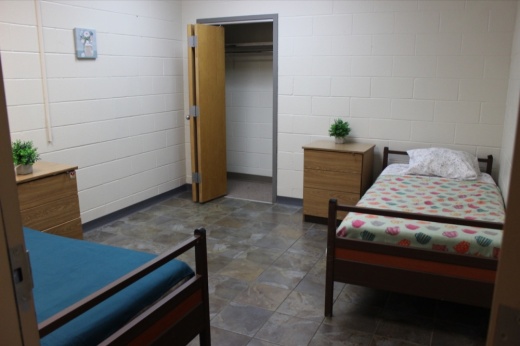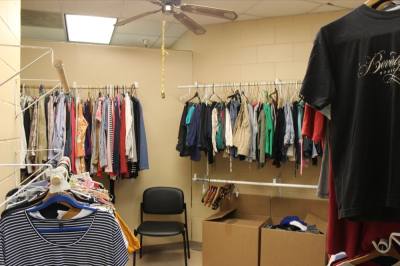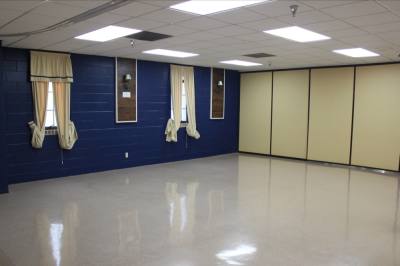The background
Earlier this year, the facility at 501 E. Eighth St. and its 100-plus shelter beds was at risk of permanent closure after its former operator The Salvation Army announced it would be shutting down the complex within a matter of weeks.
That February update caught the facility's clients, city officials and others in the local homeless response community off-guard and sparked concern given the shelter's centralized location and focus on serving women clients.
Advocates and residents facing imminent displacement petitioned the city for assistance, and City Council voted in March to fund a one-month extension of operations to help clients forced to leave the facility.
To maintain the facility's critical beds, Austin officials went on to consider the shelter's temporary lease by the city and linking its operations with the Austin Resource Center for the Homeless, or ARCH, next door. Both facilities came under the management of nonprofit Urban Alchemy, which was chosen last year to helm the ARCH after that facility's previous management exited on short notice.
Following those actions, city leaders decided to make Austin's takeover of the shelter complex permanent. Council voted to spend just over $15 million to purchase the facility and some neighboring parcels owned by The Salvation Army in November.
What's happening
After months of preparations by the city and Urban Alchemy, Austin's Eighth Street Shelter will begin welcoming clients Dec. 21.
“We’re excited to open up before Christmas; we’re excited to give people a place where they can come in and call home," Homeless Strategy Officer David Gray said.

Based on positive client feedback after the city's Northbridge and Southbridge shelters doubled their occupancies this year, most rooms at the Eighth Street Shelter will also accommodate two people—although there are single-occupancy spaces reserved for those with disabilities or seeking more privacy.

“Folks are coming into shelter with a lot of different needs. We have folks who are coming in who are escaping domestically violent situations; we have folks maybe recently lost their home or their apartment that are now sleeping under a bridge; we have folks who are trying to navigate a substance use disorder or maybe a mental health challenge," he said. "Those are the examples of the clients who are going to be coming here and get connected with resources to help them end and resolve their homelessness.”
The Eighth Street Shelter will bring in clients on a referral basis only, and Gray said some people currently living in other city shelters may move in if the downtown facility is a better fit—potentially freeing up some spaces elsewhere. The city's Homeless Outreach Street Team, or HOST, handles referrals, he said.

While the bulk of shelter beds are only available for those referred to the facility, Gray said several "safe place" beds will be available on a first-come, first-served basis for one-night stays as well.

The city's push to maintain the Eighth Street shelter has cost millions of dollars since early 2023. Spending has included:
- The city's one-month, $100,000 extension of The Salvation Army shelter's operations in March
- A one-year, $1.27 million lease of the facility approved by City Council in June alongside a $4.56 million contract extension with Urban Alchemy for operations at the reopened shelter and the ARCH
- The city's $15.07 million purchase of the shelter space and other neighboring Salvation Army properties in November

The big picture
The ARCH and former Salvation Army complex are among several key homeless shelters spread across Austin that drew focus this year as city leaders put an emphasis on expanding shelter spaces and funding.
Other notable updates included doubling capacity at a pair of city-owned shelters and staging a new, temporary shelter at an east side Austin Convention Center warehouse facility that now houses about 300 people.
With millions of additional dollars dedicated to Austin's shelter capacity throughout 2023, the number of clients in shelter beds reached a high this fall. More than 1,150 people were sheltered as of October, according to Ending Community Homelessness Coalition data.
Still, Gray said the city estimates there's still only one available bed for every five people in Austin seeking shelter, and a significant shelter gap is projected over the coming years.
ECHO's count of those experiencing unsheltered homelessness across Austin and Travis County also continues to climb, with an estimate of more than 5,500 people as of October—a more than 50% increase since last fall.







